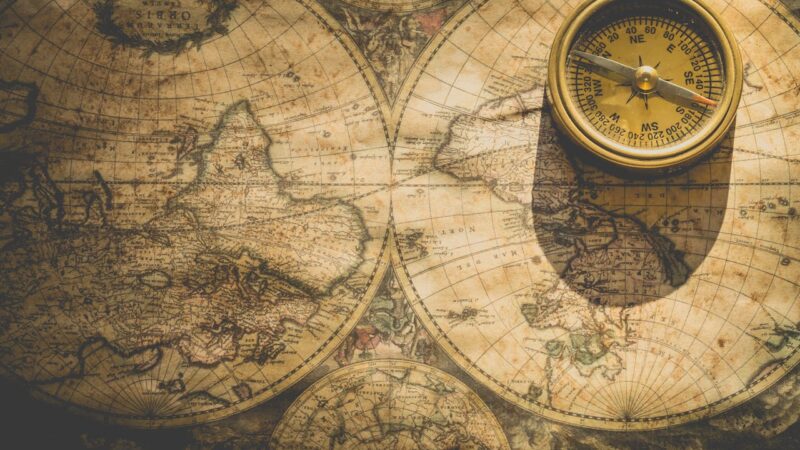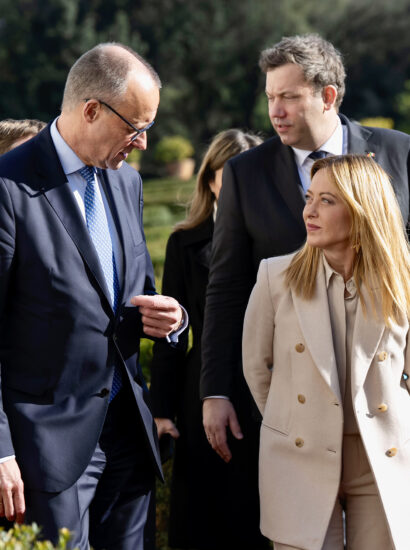According to Wikipedia, the black swan theory or theory of black swan events is “a metaphor that describes an event that comes as a surprise, has a major effect, and is often inappropriately rationalized after the fact with the benefit of hindsight.” The term is based on a Latin expression that presumed that black swans did not exist. Later, the term was reinterpreted to mean an unforeseen and consequential event.
In our prognosis for 2024, we wrote the following: “If we look at this year’s list of prominent conflict zones (Ukraine, the Sahel, and Taiwan), it is safe to say that these armed struggles, state failures, and civil wars will remain with us. “In conclusion, 2024 won’t be the year when humanity will find a solution to its most pressing foreign policy issues.” In 2025, no matter how positive we can be, we don’t seem to be moving towards solutions. However, we can’t predict any black swan events that might change the course of global politics. To this end, we utilized two relevant documents from prestigious institutions: Eurasia Group’s Top Risks 2025 and the International Crisis Group report on the 10 Conflicts to Watch in 2025.
Let’s reveal the most interesting global challenges and questions for 2025 according to The Long Biref:
1. A world without leadership
2. Will Trump end the war in Ukraine?
3. USA against the Beijing-Moscow Axis
4. Syria and the Middle East
5. AI unleashed
A World Without Leadership
According to the Eurasia Group’s Top Risks 2025, the “headless” global order is the top priority on their list. They called the phenomenon the G-Zero. “G-Zero is an era when no one power or group of powers is both willing and able to drive a global agenda and maintain international order. That global leadership deficit is growing critically dangerous.
The main problem, however, is that the United States is still strong enough but unwilling to lead. We couldn’t expect the opposite from the incoming isolationist/unilateralist Trump administration. The governments of advanced industrialized democracies are unlikely to fill the leadership gap left by America’s possible inward turn. Countries like Germany, France, the UK, Italy, Japan, South Korea, and Canada are struggling to maintain stability and avoid disruption and are unable to bolster the global order.
It’s the cumulative impact of the G-Zero leadership deficit on the breakdown of the global order. “We’re entering a uniquely dangerous period of world history on par with the 1930s and the early Cold War. This geopolitical reality is the force behind all the Top Risks,” the Top Risks 2025 writes.
Will Trump End the War in Ukraine?
Donald Trump has pledged to negotiate with Russian President Vladimir Putin in order to put an end to the conflict between Russia and Ukraine. Although it is difficult to envision a route to a lasting ceasefire, let alone a peace agreement, talks are worthwhile.
Indeed, Volodymyr Zelenskyy believes that might be the case, predicting that Trump’s administration will bring an end to Russia’s war in Ukraine “faster.” By indicating his willingness to negotiate, the Ukrainian president may have been merely putting on a brave face and attempting to maintain good relations with the American leader.
There is a hidden sense of relief in some parts of Europe that Trump may end the war. Despite Western pledges to support Ukraine for however long it takes, there is growing recognition that the war cannot be won if Kyiv’s goal is to reclaim all of the territory that Russia has stolen.
The US president will have to threaten tougher sanctions and escalate American support to Kyiv to persuade Moscow to engage seriously in talks. US allies will convince Trump not to take Nato membership for Ukraine off the table, at least at the outset. Transactional policy and dealmaking might be the President-elect’s great advantages if they aimed in the right direction. But on the other hand, “if Trump or top officials get too hawkish, a rival could respond in kind, aiming to reset a red line but crossing one of Washington’s own,” write Comfort Ero and Richard Atwood President and Executive Vice President of the International Crisis Group in their year-opener commentary.
USA Against the Beijing-Moscow Axis
For years, China and Russia – and, to some degree, North Korea and Iran – have been challenging the US interests in Asia and Europe. Putin, some say, was shyer about acting up with Trump in office. We will see how he reacts to the Trump 2 era. Putin’s revisionist goals toward the US-led West are a core driver of his foreign policy. The Russian president strongly objects to NATO expansion and Russia’s exclusion from the European security system.
These grievances lie behind Putin’s desire to undermine Western democracies and provoke chaos in the US-led Western alliance system. No other country is doing more to achieve this than Putin’s Russia.
As a result, throughout the year, Russia will likely interfere in the domestic politics of countries it sees as adversarial, pursuing tactics like those it used in Romania last November. In addition, Moscow will very continue its hybrid campaign, like damaging undersea cables; Moscow will continue attempts at arson and even assassination and meddle with GPS systems at airports. Moreover, it will continue to use Telegram to instill pro-Kremlin views in citizens of European countries and turn them against their own governments.
US-China relations have been on a more even keel since a November 2023 summit between Chinese President Xi Jinping and outgoing U.S. President Joe Biden.
The two countries reopened military-to-military channels, vital for managing the risk of unintended collisions between Chinese and U.S. warships in the Pacific or planes overhead, and China reportedly took tentative steps to stem the flow of fentanyl precursor chemicals into the United States.
Still, President-elect Donald Trump will take office with the rivalry far more entrenched than it was eight years ago. Some cabinet picks (first and foremost the Secretary of State nominee, Marco Rubio) believe the United States is engaged in a global struggle with China, one in which it must prevail. Others in Trump’s circle think that his close ally and potential administration member, Elon Musk, who does business in China, wants friendlier relations. Trump himself has sent mixed signals: confrontational on trade, lukewarm on Taiwan’s defense, even admiring of Xi’s authority.
Syria and the Middle East
There had been an impasse in Syria for several years. In 2020, Turkey sent troops and made a deal with Russia, which stopped an attack on the northwest of Syria that Ankara feared would force millions more refugees into Turkey. The truce placed Idlib province under the control of Hayat Tahrir al-Sham (HTS), a former affiliate of al-Qaeda that had split from the global jihadi movement. The northeast was occupied by the Syrian Democratic Forces (SDF), led by Kurds. For the most part, the world believed that Assad had won the war.
Then, on November 27, HTS launched an attack, moving from Idlib and, presumably to their own surprise, capturing Aleppo, the nation’s second city, with minimal resistance. They marched southward from there, arriving in Damascus on December 8. In less than two weeks, the Assad family’s regime – which had governed Syria for 54 years – was overthrown. Now the HTS and its leader, Ahmed al-Sharaa (previously Abu Mohammed al-Jolani/al-Jawlani) faces difficult obstacles. The next year’s big question is: can these Islamist extremists – who haven’t yet denied their origins – truly change to meet the fundamental needs of a functioning, multi-religious state that can uphold law and order both inside and outside its borders and provide civil liberties that are better to those enjoyed by Syrians under the long-standing Assad regime?
Flexibility is not produced by HTS’s collective history of extremist ideology. It promotes a closed, self-protective conformity; attacks on Christian symbols were an indication of a lack of discipline. It is difficult for raiders to become administrators.
Turkey, which stands to gain more than any other neighbor from Assad’s fall, should let Syria’s new authorities negotiate with the SDF the northeast’s reintegration on terms everyone can live with.
As Assad fell, Israeli bombs leveled Syrian air force bases, naval facilities, and arms depots, including, according to Israel, chemical weapons facilities. Israel, which annexed part of the Golan Heights in 1981, also sent troops into an adjacent demilitarised zone and hilltop positions on its Syrian side – steps that Israeli Prime Minister Benjamin Netanyahu called temporary and defensive. Sharaa, while criticising the bombardment and offensive, pledges to abide by existing agreements with Israel.
Israel has devastated the Gaza Strip with its attack, which was initiated in revenge for Hamas’s October 7, 2023, attack. Local authorities estimate that the campaign has killed up to 45 000 Palestinians. At least one-third of them were children, and the majority were civilians. There are thousands more bodies missing, most likely beneath the debris. Entire neighborhoods have been leveled, and two-thirds of the infrastructure and buildings are in ruins or damaged. The outgoing President, Joe Biden, mainly turned a blind eye to this kind of unprecedented retaliation.
What change Donald Trump will bring is unclear. He has reportedly told Netanyahu that he wants the Gaza war to end before he assumes office but without hinting at his terms. However, Israel’s ultranationalists and Jewish supremacists have been celebrating Trump’s re-election, and his choice of foreign policy and national security officials has only made them happier. The nominee to be the U.S. ambassador to Israel, Mike Huckabee, has rejected the very notion that there is a people known as Palestinians. Nonetheless, Trump not likely to endorsement of the annexation of the West Bank or at least of the Israeli settlements.
“I think he’s going to be disappointed, and he’s going to have to recalibrate his approach because Trump wants to end the fighting in the Middle East almost as much as he does in Ukraine,” a Republican aide said, referring to the Israeli leader’s especially, Netanyahu’s high expectations towards the new administration.
AI Unleashed
“Demagogues and populists will weaponize artificial intelligence (AI) for narrow political gain at the expense of democracy and civil society. (…) However, technological advances will create structural advantages for any political leader to deploy these tools—no matter where they sit on the political spectrum. Political actors will use AI breakthroughs to create low-cost armies of human-like bots. These bots can be tasked with elevating fringe candidates, peddling conspiracy theories and fake news, stoking polarization, and exacerbating extremism and even violence – all of it amplified by social media’s echo chambers,” we wrote in prediction to 2024.
The doomsters fret about AI not changing in 2025. AI and other emerging technologies have “become crucial to the global competition between the free world and our malign authoritarian rivals,” according to General Nick Carter, former U.K. chief of defense staff and Robyn Scott, CEO and co-founder of Apolitical. “And it is the victors of this competition who will be able to determine our future,” they say. Can the progress of AI be slowing down? Or should it? It took decades from the internet’s birth to transform the world, and it might take decades for AI, too.
How to Forecast an Unpredictable 2025?
In any case, it appears that the decline into lawlessness will continue. When it served its interests, the US has consistently exempted itself and its allies from international law. Nevertheless, we can raise some hopes for 2025. The major wars that dominated the previous year are fading. As February marks the third year of Russia’s invasion of Ukraine, negotiations – and possibly a ceasefire – seem imminent. Similarly, there is less appetite or motivation to escalate the violence in the Middle East following over a year of fighting in Gaza and elsewhere.







